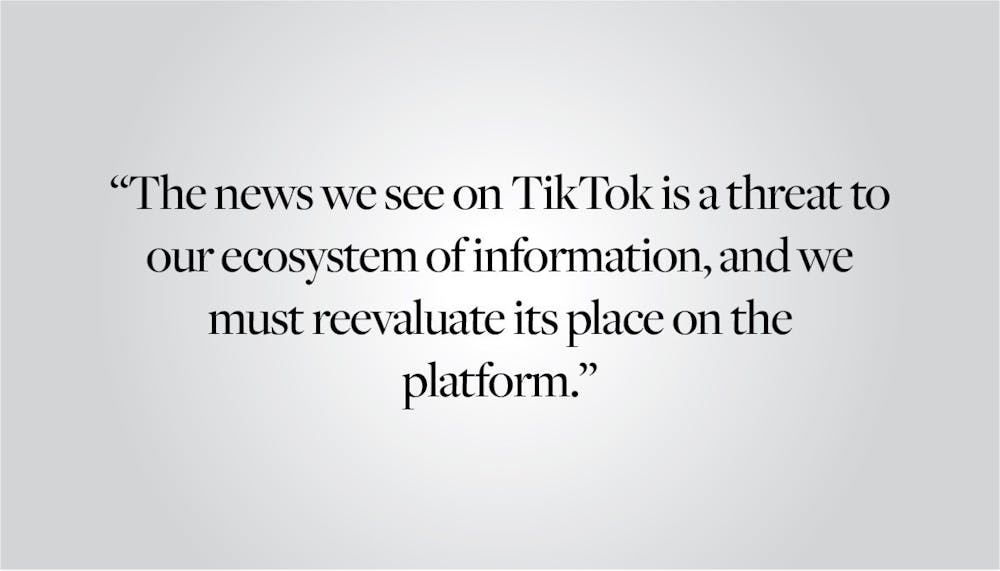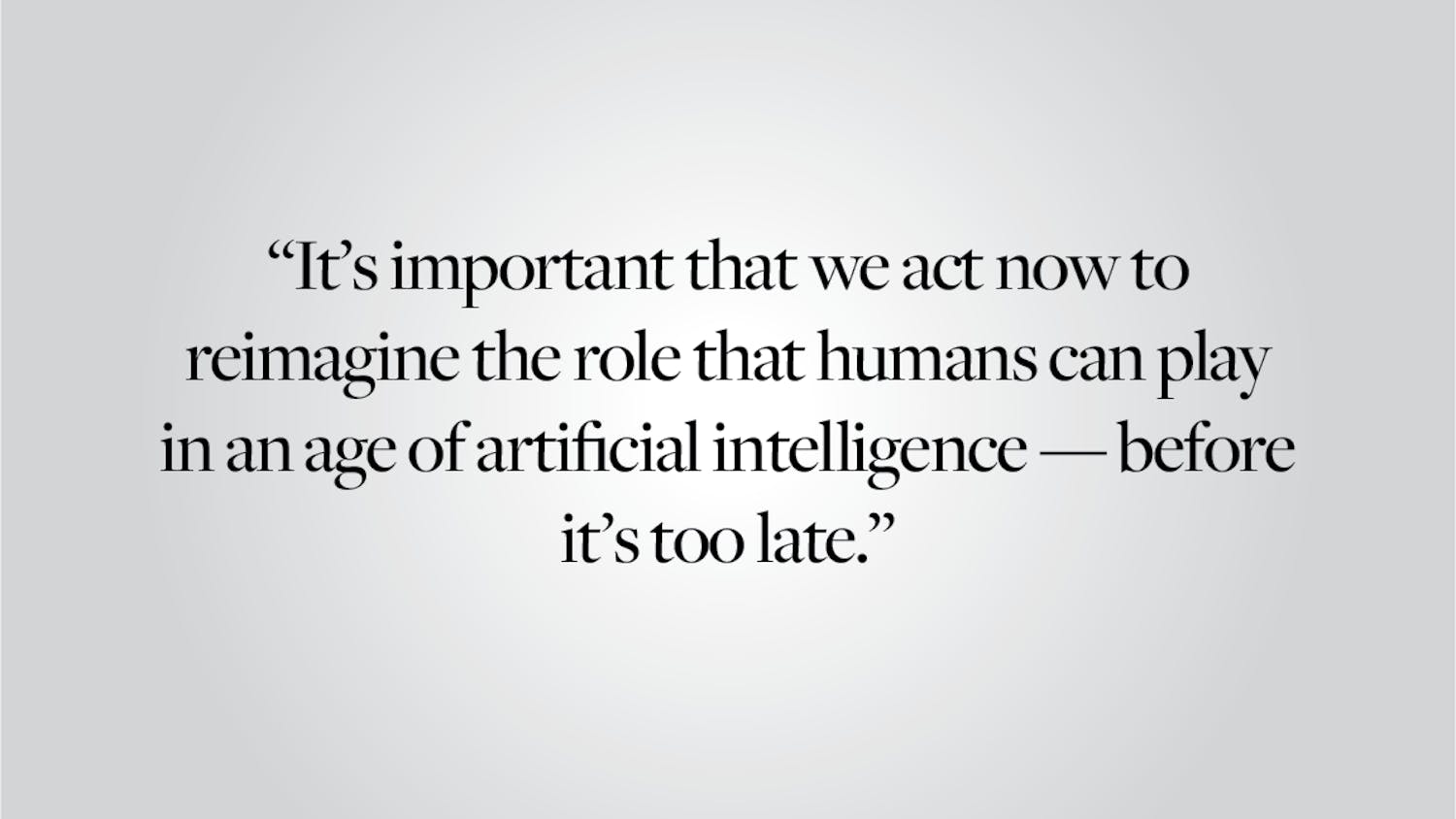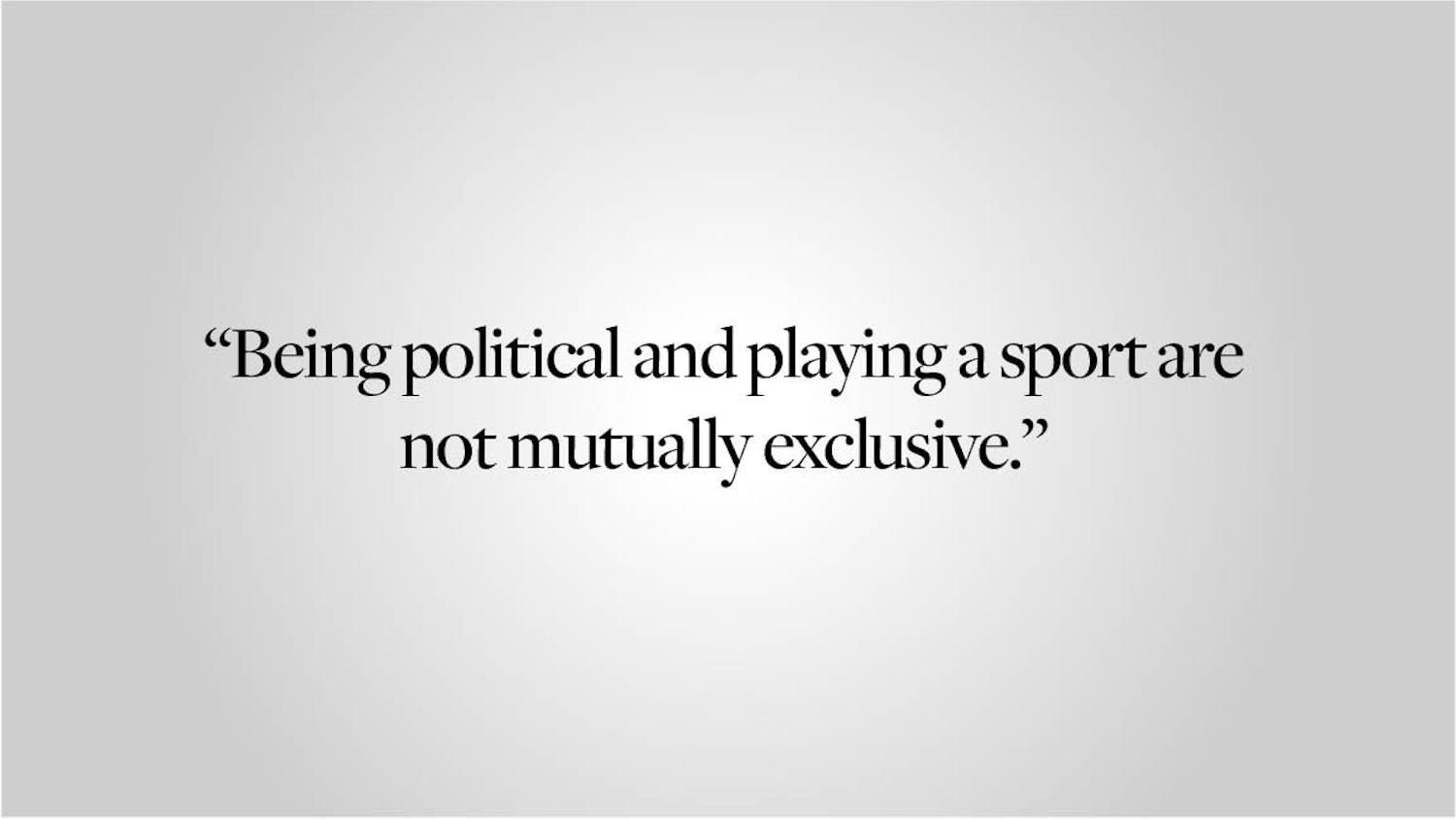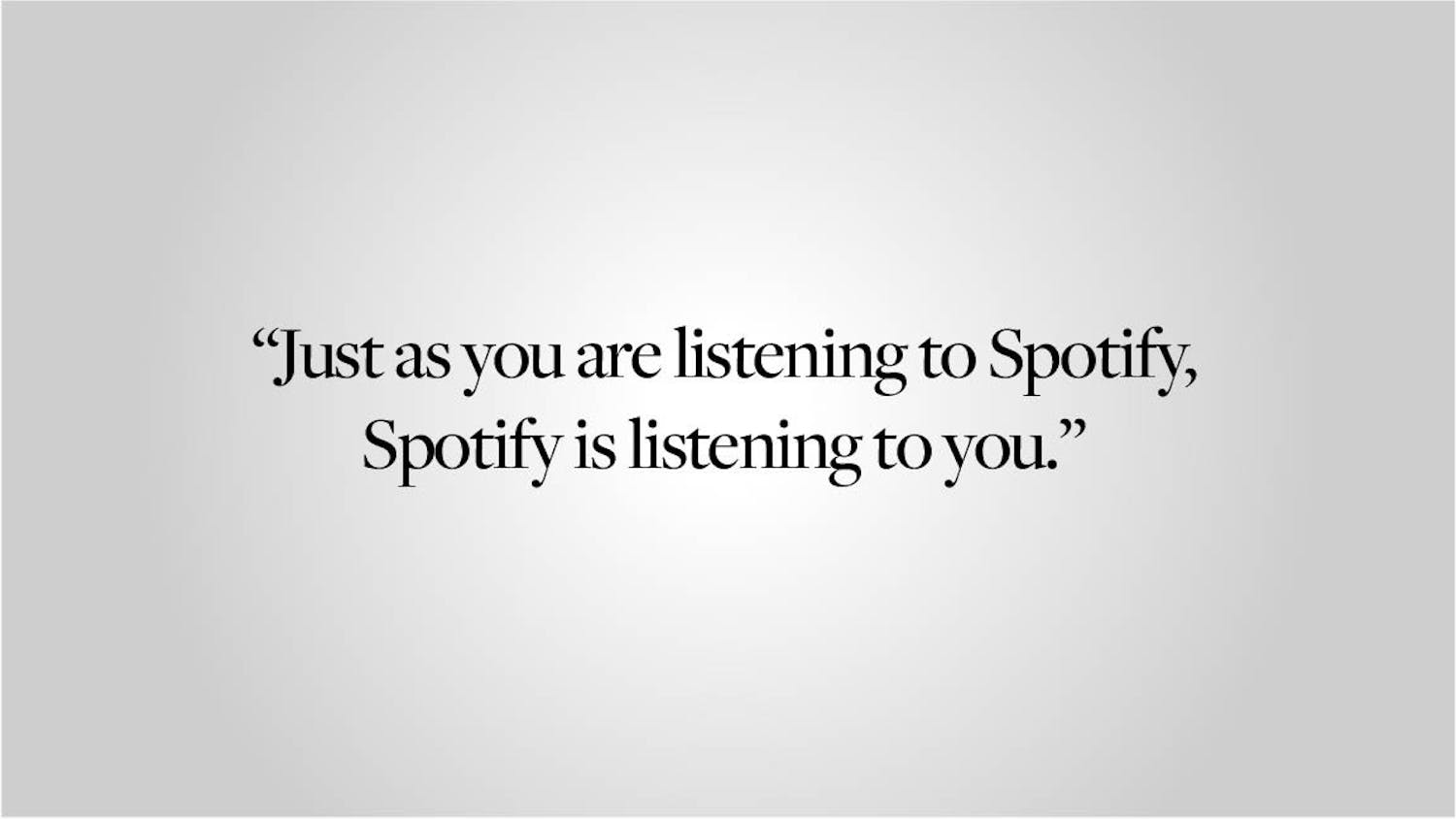Normally, I am a satisfied TikTok user, but this week I developed my first major gripe with the platform: TikTok distorts how we consume news.¬Ý¬Ý¬Ý
For the first time, scrolling through my daily TikTok feed left me deeply unsettled. One second, I was watching a clip of two girls dancing, and the next, I was met with footage of a child trapped under rubble following the in Turkey and northern Syria. Moments after that, I was back to a lighthearted makeup tutorial. I had no time to give the child‚Äôs survival story the attention and empathy it deserved before it was replaced by a remarkably superficial clip. Jamming world tragedies in between sequences of content meant for quick and mindless consumption is unethical. Presenting news, especially tragic news, in this way diminishes the severity of humanitarian crises and encroaches on our capacity to respond appropriately.¬Ý
On a psychological level, when one encounters trauma-related stress they go into ‚Äúfight, flight or freeze‚Äù before healing. Yet, when we are constantly exposed to trauma in our news notifications and social media apps, our capacity to relax, recover and cope healthily is diminished.¬Ý
Simply put, more time to digest the traumatic stories of our world. TikTok perpetuates a toxic, fast-paced relationship with the news that forces us to forgo opportunities to process tragedy meaningfully. This leaves us numb ‚Äî we lose our capacity for reflectiveness and self-awareness, ultimately challenging our ability to empathize with crises and the people they affect. Thus, having news on TikTok only pushes users of the app to grow indifferent to our world's most critical issues.¬Ý
There are problems with how TikTok delivers news to its users even beyond the inappropriate way it presents traumatic news stories. The app‚Äôs highly personalized machine-learning dangerous echo chambers that can polarize communities. By assessing how many times we replay a video or how fast we scroll past a post, the creates individual content feeds catered to each user‚Äôs personal preferences. For , the platform has been criticized for creating a radicalization pipeline that pushes young men toward misogynistic content. Consequently, TikTok is complicit in deepening extremist viewpoints by recommending content aligned with a user's existing values and beliefs. While this strategy is lucrative in generating ad revenue and attracting users to the app, it also limits our exposure to the diverse set of opinions that exist in the real world.¬Ý¬Ý¬Ý
TikTok is the fastest-growing in the U.S. and has the attention of over a billion users worldwide, which is why some may argue it‚Äôs a valuable platform for disseminating information. However, in practice, TikTok has become nothing more than a cesspool of misinformation for its young consumer base. According to a by NewsGuard, searching the app for information on top contemporary news stories returns results that are riddled with false or misleading claims. The news we see on TikTok is a threat to our ecosystem of information, and we must reevaluate its place on the platform.¬Ý¬Ý¬Ý
TikTok was to be an entertainment app, and it needs to start acting like it again. Despite TikTok‚Äôs persistent failings as a news source, about a of American adults under 30 are now turning to the app for news coverage. This makes sense to me ‚Äî TikTok caters to our short attention spans, embracing a visually stimulating aesthetic that traditional news media cannot compete with. However, as engaging as TikTok may be, none of this contributes to the app‚Äôs ability to actually function as a viable news source.¬Ý
It is clear that TikTok is a defining entertainment product for our generation, but this doesn‚Äôt mean that it has to fulfill every media consumption need we have. TikTok has had as a social media app, but it has failed to effectively house news and entertainment together. Perhaps there is an entrepreneurial opportunity to leverage TikTok‚Äôs ingenious video format to exclusively disseminate credible news stories without personalized algorithms. However, in order to get to this point, we must purposefully push back against the desensitization and polarization of news on TikTok and work together to develop a modern medium for news engagement.¬Ý
Yael Wellisch ’26 can be reached at yael_wellisch@brown.edu. Please send responses to this opinion to letters@browndailyherald.com and other op-eds to opinions@browndailyherald.com.




